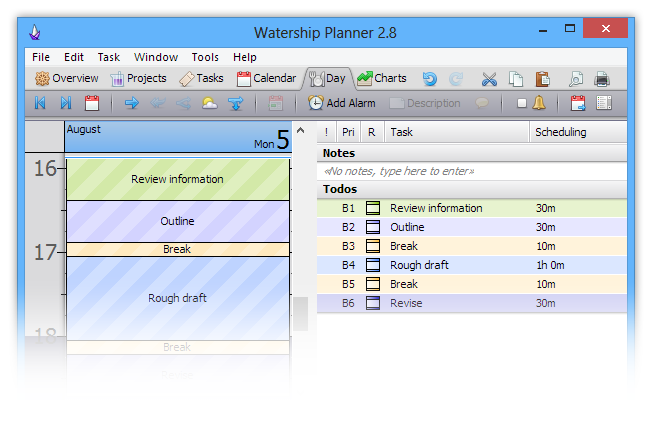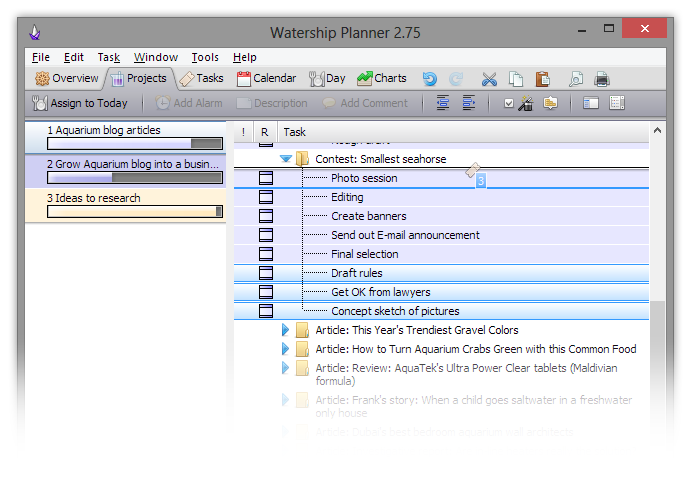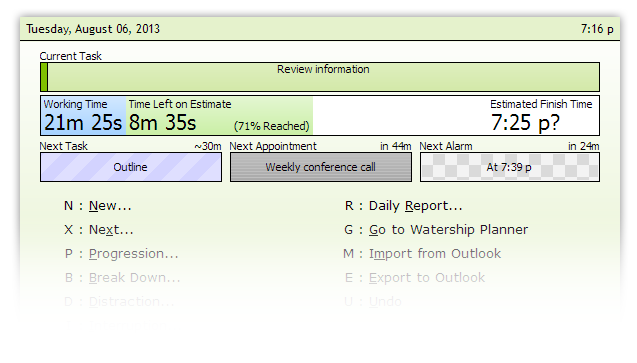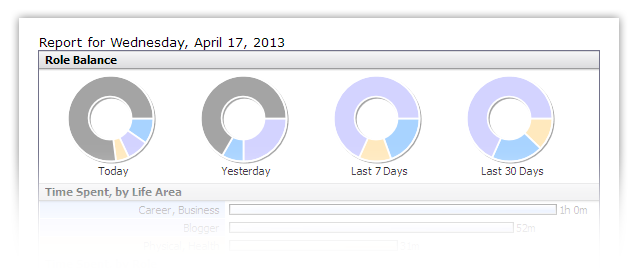
The mental silence needed to generate good ideas

Making it easy to end the day thinking "I had a really good day today"

Predictably enter and maintain flow

Continuously discover new opportunities
What We Deliver—Guaranteed
If you don't personally see the results mentioned below, you get your money back. 60-day, no questions asked return policy.




What Makes Us Different
We aren't "simple" todo list software—we make the creative process predictable
Q: How do you find the time for proactive thinking when the connected world is there to interrupt you?
A: Time Mapping
Free up periods needed for relaxed thinking with scheduling expressive enough to let you set & forget your constraints
About our unique
Day Planner Software
features
Q: How do you decide what to do, when there is so many things you know you should be doing?
A: ROI Prioritization
Organize your desired outcomes, and then outline and rank your opportunities by the "biggest bang for the buck"
About our unique
Goal Setting Software
features
Q: How do you keep your mind from getting distracted when you are working on something?
A: Clapperboard
Finely tune your concentration by deflecting common thought patterns that break your flow
About our unique
Time Management Software
features